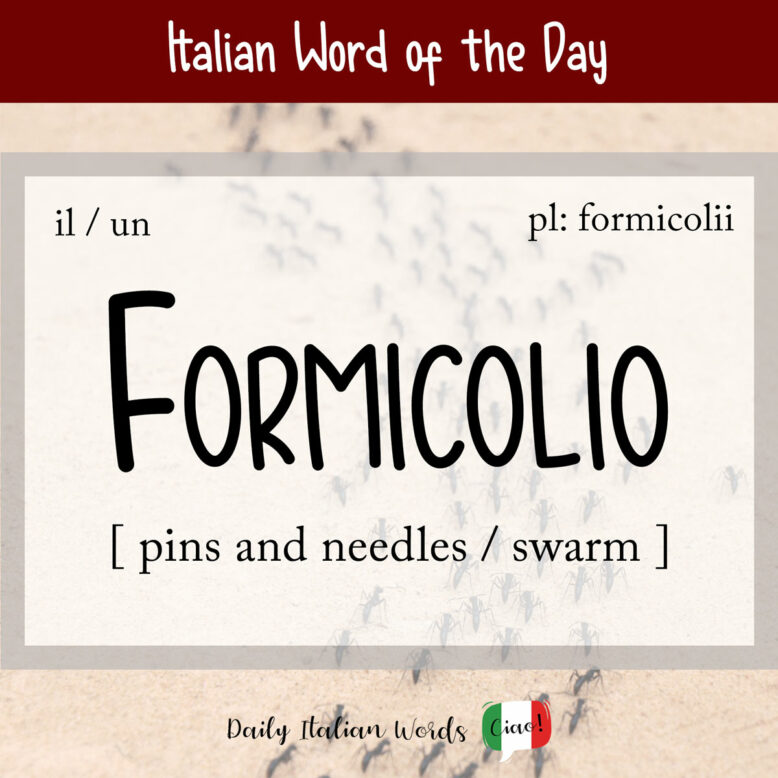Formicolio is the word in Italian for both swarm and pins and needles.

Being a masculine noun, it takes the following definite and indefinite articles:
- il formicolio
- i formicolii
- un formicolio
- dei formicolii
Before we attempt to explain the two very different meanings associated with this word, it is important to touch briefly upon its etymology. Formicolio can be traced back to the word formicola / formica, both of which mean mean “ant”.

If ants are known for one thing, it is their tendency to swarm, either during mating season and to collect food for the colony. This is where the first meaning for formicolio comes from, although it is mostly used to talk about swarms of people rather than ants or other insects.
C’era un formicolio di persone che correvano in tutte le direzioni.
There was a swarm of people running in all directions.

The second meaning, which is arguably more common in everyday speech, is pins and needles. The allusion is obvious: the sensation of your limbs falling asleep is comparable to ants crawling all over your skin.
You can use the following expressions to describe the sensation:
- avere un formicolio = to have pins and needles
- mi è venuto un formicolio al braccio = I got pins and needles in my arm
Stamattina ho avuto un formicolio alle gambe mentre ero seduto.
This morning I had pins and needles in my legs while I was sitting.
Some possible synonyms for avere un formicolio include:
- informicolirsi (or informicolarsi) = the verb equivalent
- avere un/una (body part) addormentato/a = literally “to have a (body part) that’s asleep” – similar to the English “my (body part) has fallen asleep”
- avere le formiche (colloquial) = you can use the actual word for “ants” instead of formicolio

Heather Broster is a graduate with honours in linguistics from the University of Western Ontario. She is an aspiring polyglot, proficient in English and Italian, as well as Japanese, Welsh, and French to varying degrees of fluency. Originally from Toronto, Heather has resided in various countries, notably Italy for a period of six years. Her primary focus lies in the fields of language acquisition, education, and bilingual instruction.


